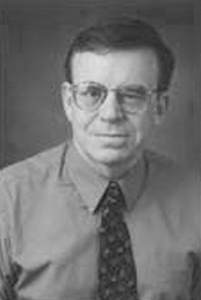BREAKING OLD HABITS IN 2008
 Even chronic procrastinators can break old habits in 2008 and become pros at managing time more wisely. Whether you want to write a novel, acquire a better job, or renovate your home, you can achieve your goals this year says local time-management expert Dennis Hensley. Hensley should know. An author who has published more than 50 books and 3,000 newspaper and magazine articles, Hensley holds four university degrees, including a doctorate from Ball State University. He directs the professional writing program at Taylor University, teaches writing and English courses at Taylor, leads writers’ workshops throughout the country, provides time-management and motivational seminars for companies such as General Motors and Lincoln Financial Group, writes for at least two hours each day (except on weekends), and still manages to spend time with his family and friends. It sounds like he has powers most humans would love to possess, but Hensley is quick to point out that he does not have superhuman powers. He simply knows how to manage his time.
Even chronic procrastinators can break old habits in 2008 and become pros at managing time more wisely. Whether you want to write a novel, acquire a better job, or renovate your home, you can achieve your goals this year says local time-management expert Dennis Hensley. Hensley should know. An author who has published more than 50 books and 3,000 newspaper and magazine articles, Hensley holds four university degrees, including a doctorate from Ball State University. He directs the professional writing program at Taylor University, teaches writing and English courses at Taylor, leads writers’ workshops throughout the country, provides time-management and motivational seminars for companies such as General Motors and Lincoln Financial Group, writes for at least two hours each day (except on weekends), and still manages to spend time with his family and friends. It sounds like he has powers most humans would love to possess, but Hensley is quick to point out that he does not have superhuman powers. He simply knows how to manage his time.
In his book How to Manage Your Time, Hensley says that time management is one of the best avenues to take on the road to success. Amazingly, however, people often do not understand the subtle lessons of time management. According to Hensley, many people become overwhelmed with all that they need to do, so they panic and end up doing nothing. “People put themselves on a money budget, but they don’t know how to put themselves on a time budget, so they fail to realize their goals,” Hensley says.
One of the first steps to take in learning how to manage time more effectively is to look at how you presently use your time. In How To Manage Your Time, Hensley says that some of the typical time-wasters include beginning a day before planning what you want to get done, starting a job before you think it through, doing most of your work yourself instead of asking someone to help you, and operating by crisis management.
To develop a better idea of how you presently spend your day, Hensley suggests using a time-management grid to record all of your major activities for two to three consecutive days in half-hour periods, from 8 a.m. to 5:30 p.m. At the end of the two- or three-day period, tally the amount of time you spent at each activity.
“Follow yourself around, writing down everything you do and how long it takes you to complete an activity,” Hensley says. “People often tell me that after they have tallied their activities, they are amazed at how much is revealed to them about themselves. Some people recognize how much time they waste by watching TV or talking on the telephone. One person identified that he was checking his e-mail messages nine times a day,” says Hensley.
One way to maximize your time is set aside two hours each day, Monday through Friday, to work on a goal or special project. Hensley explains that within a 24-hour day, people have eight hours to sleep, eight hours to work at their regular job, and six hours to participate in other activities. That leaves two hours to do whatever you want to do. He recommends using those remaining two hours each day to work on special projects.
Hensley says that you need to know and understand your prime time by asking yourself which two consecutive hours during each day you feel at your best and are most productive. After you have determined which two hours work best for you, Hensley recommends that you use this time to accomplish your prime tasks. “For some people, their prime time might be 6 to 8 a.m.,” Hensley says. “For others, it could be 9 to 11 p.m.”
Hensley also stresses the importance of working on one job at a time and staying with it until it is finished (or progressed as far along as it can at that time). He says that it is important to maintain momentum when you are working on a project.
“People must recognize that inertia is real and that it works for them,” Hensley explains. “So, whatever you are doing, you need to keep the momentum going. I suggest that when you are working on a project, keep going. The clock will say that it’s time for a coffee break and that you need to stop what you’re doing to take a break, but the problem there is that if you’re in the middle of writing a letter and your watch says it’s time for a coffee break, you lose up to 45 minutes, because when you return from your break, you have to reread the letter, think about what you were saying, and then pick up where you left off,” says Hensley.
Of course you can’t help but waste time if you find yourself stuck in a doctor’s waiting room for 20 minutes or in an airport for a two-hour delay. Not so, says Hensley. He warns that good time managers have no time to wait for things to happen, so in situations like these, he recommends using time wisely by reading a book, memorizing a speech for a presentation, listening to motivational talks on a cassette recorder or iPod, studying company reports, or brainstorming ideas.
While a system of time management may take a few weeks to master, it is not an impossible task. The key, says Hensley, is to develop and maintain discipline, which means that you must learn to establish priority tasks, stick with your tasks until they are completed, and periodically re-examine your time-management practices to see if they are practical and functional. “Remember, wasting time means wasting life, so learn to manage your time and not let it slip away from you.”
- What To Know About Mosquito Season - July 19, 2024
- Local Worship & Events: July 19 Update - July 19, 2024
- Allen County Bar Foundation Announces Scholarship Winners - July 19, 2024


